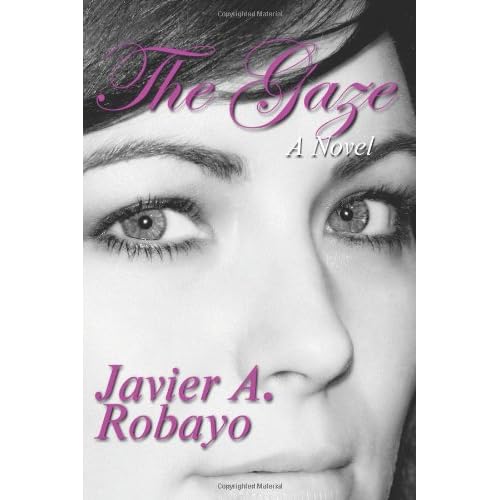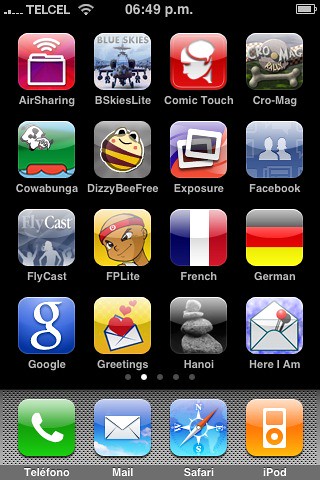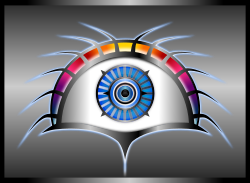Whether you're aware of it or not, you're sort of reviewing every single book you've ever read, whether in whole or in part. Don't you form an opinion about the writing, the pace, the characters and the plot as you're flipping pages? You may never tell anyone what you thought of the book, but you're still creating a review in your head for yourself -- notes and remembrances that will spring to mind every time you think of that book in the future. If you're an indie author, there's a good chance that the review you create will take a much more literal form. You can easily find yourself with a long TBR (to-be reviewed) list and a lot of responsibiliies and agreements to read other self-published books.
And believe me, I know that it's tempting to cut corners. But there are some really good reasons why you have to read the whole book if you're going to review it and share that review with others. I know there are good reasons, because I've gone through some pretty bad experiences that taught me pretty well.
All or Nothing
When I first self-published my first book (Justice), I began reading forums for indie authors pretty quickly. I wanted to connect with others like myself and learn from their experiences. I fell into a review swap agreement right away. It was my first trial as an indie author...and my first important lesson.
- Review responsibilities.
I committed myself, and I did take that commitment seriously. But I didn't know what I was agreeing to in the beginning; meaning I agreed to swap before even looking at the other author's book. Do NOT do this. I found out that I had agreed to read a book about religious subject matter, which I have never and will never do again so do not ask.
It's not my particular slice of pie, and after about 25 percent I felt strongly that I had a really good grasp of the writer's style and the main characters in the story. Basically, I had enough information to write a review about the book's premise, the author's narrative voice and the mechanics of the writing. I'm certain I'd have done a great job of writing that review, too, and I nearly went ahead and did so.
Something stopped me. I decided to read just a little bit more to find out more about the story, even though I wasn't particularly interested in the story. At 50 percent, something stopped me again. I discovered something extremely offensive in the book, and it was a deal-breaker. I knew right then and there that I could never, would never, promote this book in any way -- not even to uphold my responsibility. And that brings us right to lesson two.
- Over the line.
Funny that I should brag about stopping a book at 50 percent in a post that's all about reading until the end, right? I can appreciate the irony as much as you, but there's a point to the story and a method to the madness. There is a line when you're reviewing, and you know where it's at. When a book crosses that line, that's when it's okay to stop but that's also when you've made the decision not to review the work. You can't review it if you don't read all of it, and that's because of what I discovered: you never know when or how an author will surprise you. You might love a book, and when you're 99 percent finished the author writes something that's just over the line. If you decided to write the review at 75 percent completion, you are now supporting 100 percent of the work (unless you're writing the review to denounce the book completely and you make it clear that you didn't even finish, of course, but I find this unkind and I believe many other authors would as well). And even if your review is wholly negative, you're still contributing to its publicity.
You know how I feel about reviews: there's no such thing as a bad one. The more incendiary and negative a review, the more compelling that book will become to certain people. So read all of it, because whenever you talk about it or write about it you are supporting it in some way.
- Small taste.
There's another reason why you have to read the whole book: plots unfold slowly. You can't really get a complete grasp of the plot until you read all of it, from beginning to end. This allows you to put every part of the book into its proper perspective. Without that perspective, you are going to walk away with a skewed vision of that book. What you think of the book could end up being wildly different than your friend, who did read the whole thing. You can read just a small portion of a book and walk away from it, and your impressions will be so vastly different from others it's almost like you read a completely different book.
I was on the other end of a situation like this one. I send out a lot of review requests, because I believe in them, and I was feeling particularly confident one sunny afternoon this summer. Confident enough to toss my book on the table for the 7,500 word challenge. If you're not familiar with it, it's a particular blog where the reviewer reads only the first 7,500 words of every book they review. They make it plain that this is what they are doing to all readers and authors, so I knew what to expect.
I just wasn't prepared for it, that's all. Turns out, the first 7,500 words of my book take place before my big twist and before the main character's entire life falls apart (which is the entire meat of the entire story and really, the entire series). So I end up getting back a review that I felt wasn't really reflective of my work at all, and maybe I cried a little (I'm human, okay?), and that definitely isn't one of the reviews you'll find re-posted here on the blog (because I spent a long time pretending that particular review didn't exist and today marks the one and only time, to date, that I have ever mentioned it in any forum). I wanted to write to the blogger and beg them to read the entire book, but that wasn't the deal, was it?
Now, imagine how broken up I'd be about it if the reviewer never told me they weren't going to finish the book.
All or Nothing, Again
If you've ever created anything, you know how it feels. I get myself bent out of shape if someone doesn't take the time to read my entire email, and it stings when I know someone didn't finish my book for some reason or another. If you're going to review it as a whole, you owe it to the author to read it as a whole. The minute you stop reading, you decided not to create that review. And that's okay. Because unless you can look at the whole picture, I as a review reader don't want to see a tiny snapshot.
























